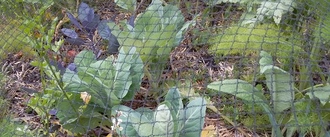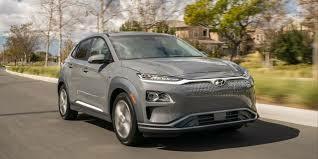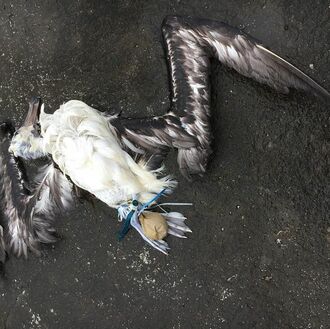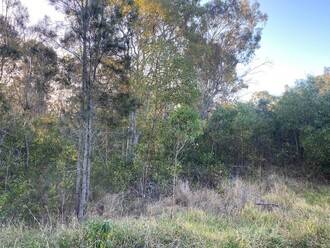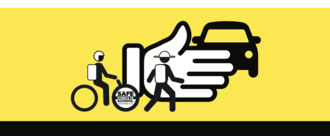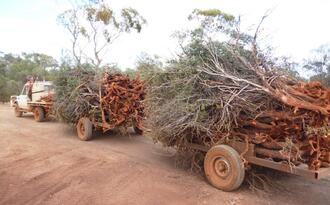-
Clean up our River systemFor 25 years now I have tried to get councils to clean up our biggest asset the Georges River. Each flood erodes more of the sandy banks due to urban spread & its diversion of run off water to the creek system that feeds the river. Trees that have been long standing face the risk of falling into the river on the next major flood & noxious weeds supplies a home for ever growing mosquito population.9 of 100 SignaturesCreated by Alan Riley
-
Block Mathias Corman's OECD post_'Trying to invert reality'_ Mathias Cormann's climate credentials are sadly lacking and has put big business before climate in almost every instance. Actually to the point of discounting all scientific evidence. Mathias Cormann talks up 'green recovery' in OECD pitch, pitching ‘zero net emissions as soon as possible’, which contradicts his record while in Australian government. Your own report "Australia needs to intensify efforts to meet its 2030 emissions goal" goes to the heart of the problem. Mathias has a record of deep climate skepticism having voted in favour of climate change mitigation in the Australian parliament. https://www.oecd.org/australia/australia-needs-to-intensify-efforts-to-meet-its-2030-emissions-goal.htm His economic policies as Minister of Finance has only enhanced the richest of Australians while penalizing the majority. His policies have significantly increased the inequity divide. https://www.abc.net.au/news/2019-07-12/household-income-and-wealth-abs-data-shows-rich-are-richer/11302696 Additionally, Mathias Cormann voted against creating a federal Anti-Corruption Commission to hold politicians to account. , Mathias is perfect for the OECD if it would like to swing towards: A supply-side agenda that will intensity class divisions, exacerbate secular stagnation and privilege corporate greed. Become more climate change skeptical and slow mitigation policy whenever and wherever possible. Harden its stance against refugee.24 of 100 SignaturesCreated by Jmichael D'angleo
-
Asbestos free lifeThousands of people in Australia are living with deadly asbestos material throughout there homes. Many of these homes are rented to unsuspecting tenants. 100s of thousands of lives are at risk of a slow death, from the affect of air born asbestos particles.3 of 100 SignaturesCreated by Dean Stefanec
-
Fruit, vegetables & nut trees on Mornington Peninsula streetsWith the cost of living increasing and financial pressures growing this is a way to lower the cost of fresh fruits, vegetables and nuts whilst delivering better nutritional outcomes and community engagement.23 of 100 SignaturesCreated by Andy Murray
-
Preventative Health Screening - Group BookingsPeople tend to delay their own check ups because they don’t have others holding them accountable to make and attend appointments. If we were able to shift the focus from individualised health care to “get everyone together” and collectively book longer group sessions with friends, family and/or colleagues; and even combine the appointment with something fun and community-focused like a morning tea, a lot more people would probably make an effort to keep up to date with preventative/early diagnostic testing.2 of 100 SignaturesCreated by Eleanor Rhynsburger
-
Get a financial discount on all EV's purchased provided by govt.We are way behind other countries in the uptake of EVs and the lack of such an incentive and lack of emission standards for vehicles stops manufacturers providing many of the EV's that exist to our shores. This needs to change as it would help the environment15 of 100 SignaturesCreated by Greg Chidgey
-
Ban helium filled balloons Australia-wide* When helium filled balloons are released, either accidentally or deliberately, they come back to Earth as litter, sometimes hundreds of kilometres away, and threaten wildlife and farm animals. * Birds, whales, sea turtles and other animals, wild and domesticated, have been killed by balloons, mistakingly eating them as jellyfish or other food. * Death occurs slowly through starvation caused by a blocked intestinal tract when the balloon combines with stomach juices. * Plastic disks can cause choking or blockages. * Entanglement in attached streamers also occurs, causing death. * Balloons pose a threat if whole, burst or remnant. * With added chemicals for colour, longevity etc, latex balloons do not biodegrade, and Mylar balloons break up into microplastics. * Helium is a valuable and non-renewable gas, extracted from the Earth’s crust. * It is vital to many medical and scientific applications, such as cooling magnets in MRI machines. * Helium is needlessly wasted when used to inflate party, promotional or ceremonial balloons. * Accidental release occurs far more easily when balloons are inflated with helium. * Just one accidentally released balloon can kill or harm marine or land wildlife. Going without helium filled balloons is one small step we can take to protect wildlife and reduce the impact of human activity on the natural environment.1,009 of 2,000 SignaturesCreated by Karen Joynes

-
Eco-Friendly Periods 4 Vic SchoolsAs a science teacher, I'm lucky to get to work with young people learning about the impact of pollution on our environment. My classes are shocked to learn about how plastic causes harm, especially to marine ecosystems, and while it's great that we're rolling out free pads and tampons statewide to end period poverty, we should make sure that we're also looking after the environment. Tampons have a polyester veil and are composed of approximately 6% plastic. Sanitary pads are made up of 90% plastic. Having plastic so close to such an intimate part of a young person's body is not good for their health and not good for the environment. As well as their contribution to plastic pollution, a year's worth of typical menstrual products impacts the climate too, with a carbon footprint of 5.3 kg CO2 equivalent per individual. The average person who menstruates throws away 200 kg of menstrual products in their life time. Unfortunately some period products enter the sewage system. Overtime their plastic content breaks down into smaller pieces, known as micro-plastics and fibres. This poses a further threat to vital eco-systems where they can enter the food chain from the bottom, up. This petition is about giving young people choice over how they manage their period. If given a choice, I argue that many young people will choose to manage their period in a sustainable way. I am asking that the Victorian Government provide Victorian students with the option of choosing eco-friendly period products; menstrual cups, period pants or washable pads. Young people should be able to make their own decision about how they wish to manage their period. Giving them this option will help encourage Victorian school aged children to manage their periods in a sustainable way and keep huge amounts of waste out of Victorian landfill. It will also help foster sustainable life habits and choices. A person needs to only have 7 menstrual cycles before the costs of a menstrual cup and one pair of period undies are re-couped. The alternative proposed, over the life time of this initiative, will save the public purse immensely and as well as save costs to landfill.1,879 of 2,000 SignaturesCreated by Paula McIntosh
-
Save Sellicks BeachSo many South Australians remember Sellicks as a cute holiday destination, with sweeping views of the hills towards Myponga and miles of golden sands. It's quiet, peaceful, with quaint seaside houses and no commercialisation. If Government plans go ahead Sellicks will be destroyed by the building of hundreds of houses and a shopping centre, making it just like any other suburban development. It will lose its charm and appeal as a holiday destination, and destroy the area for local residents who call it home. We can't get back our beautiful areas once they are built on. We have seen this happen again and again, leaving us with fewer and fewer places to enjoy. Future generations are denied enjoyment for the sake of short term financial gain for a small number of people. Please support your support for Sellicks, one of our most beautiful rural seaside spots by signing this petition to stop the development.22 of 100 SignaturesCreated by Alex French
-
A better alternative to the 2nd M1The Coomera Connector or 2nd M1 freeway is a nonsensical nightmare for the Gold Coast and much of S.E. Queensland. It offers no genuine benefits and will destroy several environmentally important and sensitive areas. In actual fact, this crazy construction idea will make traffic congestion worse. This approach to the problem of expanding populations and the use of cars is like the proverbial fly buzzing in a bottle. I belong to the “No Second M1” group, one of the organisations who oppose this monstrous freeway project, which is being rushed through by the QLD government without due process and proper information being provided to the community. An on/off ramp for this motorway is to be located directly opposite Helensvale High School, which I believe is the second largest school in the state. The construction of this six lane 100 kph motorway, with its on/off ramp would seriously impact the health of everybody there and once complete, its operation would impact both their health and safety along with all the residents living along its route. There is much more opposition to this road than the TMR claim. They decided on what they wanted and then began to consult. They cherry-picked the people who they consulted (initially they only accepted comments from people who used the M1 twice a week or more) and ignored the others. There was one survey of theirs that showed a majority of people against the freeway but they just shelved this. The Palaszczuk government and TMR have totally failed to consider the health and safety of all of the people living next to its path and to nearby school children. The TMR’s whole process resembles something out of the ABC’s satirical program, Utopia. My next-door neighbour is a senior executive at Transurban and he says that the entire project is nonsensical from an engineering and commercial viewpoint in addition to its other drastic flaws. The planned 45 km freeway will kill many koalas, kangaroos, brush turkeys and much other protected wildlife. There are many koalas in this corridor. The TMR are risking a legal class action on the part of the many thousands of people living right next to this corridor for the massive loss in value of their homes. The negative health aspects for these residents are overwhelming due to an intolerable noise and pollution level. In future years, more legal suits are likely due to premature death and chronic ill health on the part of these residents. The transport needs of the Gold Coast could be completely met by upgrading the on/off ramps of the M1 and widening it in several places. Studies, including a well-researched one from Strong Towns in the U.S., have shown that the ill-considered construction of motorways, far from solving traffic congestion, only makes it worse. To top it off this motorway is projected to cost over $2.4 billion of borrowed money. https://www.strongtowns.org/journal/2017/10/12/how-to-tame-your-dragon-freeway-edition?rq=motorways Better use of existing infrastructure, including highways, cheaper and better public transport is a long-term solution. The link for our “No 2nd M1” group is https://www.facebook.com/NoSecondM1/ There seems to be a conspiracy of silence on the part of the QLD government, the Opposition and the TMR. Yours Sincerely, John Spencer13 of 100 SignaturesCreated by John Spencer
-
Wollongong residents for Safe Streets to SchoolIllawarra children deserve to walk or ride to school safely. Walking to school improves kids' fitness and independence. However, they are often driven over short distances to school by parents. Parents perceive that their child's journey to school is unsafe on part of or on their whole journey. As a result, our streets are subject to tens of thousands more car trips every year, making them even less safe and clogging up roads with unnecessary traffic during morning drop off and afternoon pick up. Streets without footpaths and crossings with speed limits higher than 30km/h are not considered safe by Australia's safe system approach. The Case for crossings: Research shows that children cannot judge gaps in traffic consistently when cars go faster than 30km/h to safely cross a street On streets where there are no footpaths and crossings, reducing the car speed to 30km/h would prevent most accidents: the stopping distance for a car traveling 30km/h is 13m. Stopping distance for a car traveling 50km/h is 37m. The risk of death or serious injury if hit at 30km/h is less than 10%; compared to 90% if hit at 50km/h. It is an unreasonable risk to place our children in harms way on their journey to school.679 of 800 SignaturesCreated by Jon Lindley
-
Stop the plunder of WA’s native sandalwood!Western Australia’s native sandalwood (Santalum spicatum; ‘willarak’ in the Noongar language; 'dutjahn' in Martu/Wongi)) is a beautiful small tree that used to grow all across southern WA. Over-exploitation in the 175 years since colonisation has stripped sandalwood from much of its original range. Sandalwood was the Swan River Colony's first export! The WA government trading enterprise, Forest Products Commission (FPC), makes a profit from ‘pulling’ sandalwood in outback WA, uprooting whole live trees which are often hundreds of years old. Current exploitation (2,500 tonnes per annum) is far above the government's own optimistic estimate of long term sustainable yield ("600 tpa" in 2012). To make matters even worse, FPC's 'regeneration' in the wild is a disastrous failure due to grazing by introduced animals, loss of native seed-burying mammals, frequent fires and climate change. FPC acts as a state monopoly in taking native sandalwood from the wild (for free!) and then selling it to its chosen processors to make oils and incense. It is doing all it can to hinder the transition to the large, established native sandalwood plantations in WA's wheatbelt, while also trying to restrict the growth of Aboriginal-owned sandalwood businesses (such as Dutjahn Oils) which operate on a much lower volume of mostly dead sandalwood. The burgeoning native sandalwood plantation sector needs to align itself and work with Aboriginal Traditional Owners in partnership for ethical, moral and sustainable sourcing of Western Australian sandalwood products. Oils, nuts, etc, from Indigenous-owned businesses are the only WA sandalwood products consumers should choose.12 of 100 SignaturesCreated by Peter Robertson




